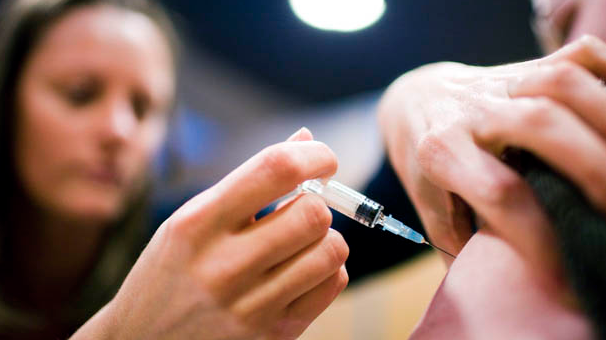In the wake of a national measles outbreak, Madison public health officials are concerned about the health of students and residents who are not immunized.
The current measles outbreak originated in Disneyland in December and has spread from California to six other states as well as Mexico, according to the Center for Disease Control health advisory.
Measles is a disease with symptoms ranging from a runny nose to a rash covering the body, and anyone who is not vaccinated is at a high risk of catching it.
An outbreak could cause a public health emergency if it reaches Madison, epidemiologist Craig Roberts said.
“[An outbreak] could be a huge problem just because of the number of people who would be potentially exposed,” Roberts said. “They all have to be tracked down, notified, assess their immune status. A single case could result in a hundred people exposed.”
Measles is highly contagious, especially to those who are not immunized, Dr. Nicole Baumann-Blackmore of Meriter Hospital said. About 90 percent of unimmunized people who are exposed to measles will catch it, she said.
The people who are at the highest risk are unvaccinated adults above the age of 20, so an outbreak among students is plausible, Baumann-Blackmore said.
While there are a lot of college-aged students who have the vaccination, that is not always the case, Jeff Golden, spokesperson for Public Health Madison and Dane County, said.
“There are holes in the safety net of mass vaccinations,” Golden said. “So we are in a situation now where universal vaccination against the measles is not a reality right now.”
The only prevention method is to be immunized with two doses of the vaccine and to ensure a patients vaccinations are up to date, Roberts said.
University Health Services is spreading the word by sending out an email to students about making sure they are vaccinated, Roberts said. UHS also sent another more specific email to students whose records indicate they are not vaccinated or have not received the full dosage of the vaccine.
As well as encouraging people to be aware of their vaccination status, Madison hospitals are taking extra measure to try and stop the spread.
“For measles, [patients with symptoms] would need to wear a mask in and out of the hospital,” Baumann-Blackmore siad. “Providers would need to wear a certain kind of mask called an M-95 mask when they are seeing that patient, and then there are protocols that we follow for cleaning the rooms that those patients have been [in].”
These steps are necessary to keep other patients safe because the measles virus can stay in the air or on a surface for up to two hours after an infected patient has been in that area, Baumann-Blackmore said.
International students on campus are at a slight disadvantage because they do not always have easy access to their medical records, meaning they are not aware of their vaccination status, Roberts said. However, the measles outbreak could still originate from any student on campus who is not vaccinated.
“The vaccine is widely used around the world — it has been for 50 years — so most international students have had this vaccine,” Roberts said. “But there are parts of the world where measles are much more prevalent … So students from those areas might be at more risk.”
Making sure everyone is aware of their vaccination status and convincing those are are not vaccinated to get the immunization is the most important thing right now, Baumann-Blackman said.


